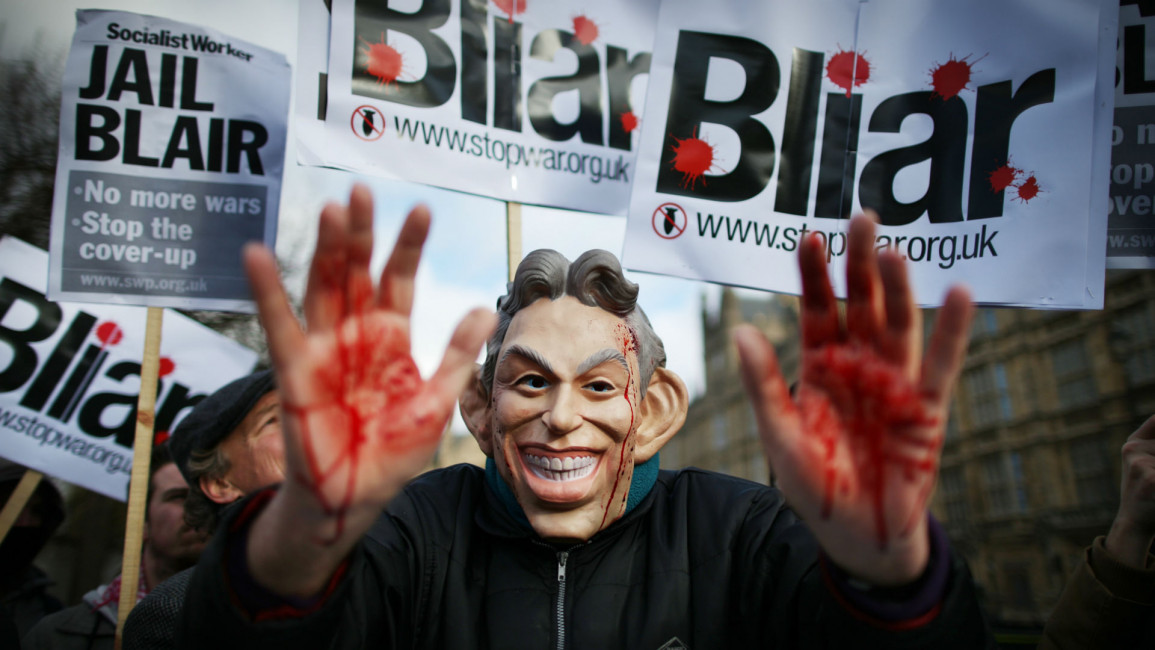
Long-awaited Chilcot report will amplify UK political unrest
Conservatives off the hook
Hot on the heels of the UK's democratic decision to leave the European Union, the Chilcot report will most immediately affect the opposition Labour party. At a time of crisis for the ruling Conservatives, Labour rebels have given a pass to the failed Prime Minister David Cameron, and have set their sights on their own leader, Jeremy Corbyn.
Labour MPs' recent staggered resignations from the shadow cabinet were planned for maximum media impact and overshadowed the possible split of the Conservatives. The mass abandonment of Corbyn was reportedly orchestrated by Corbyn's disloyal Shadow Foreign Secretary, Hilary Benn and the MP Conor McGinn.
A public relations company, Portland Communications, with ties to former Labour Prime Minister Tony Blair and the Blairite Fabian Society, has apparently overseen and helped deliver the attempted coup.
Many of those resigning justified their action by criticising Corbyn's performance in the EU referendum Remain campaign. However, two thirds of Labour voters wanted to remain, and Corbyn had probably secured a significant proportion of these votes by setting out ideas to reform the Union.
Foreign policy shift
There are domestic factors and longer-term ideological differences that explain the move against the Labour leader, but foreign policy is also key factor, and the spectre of a fallout from Chilcot is causing panic among Blairites.
 |
The spectre of a fallout from Chilcot is causing panic among Blairites |  |
It is hoped that the report - seven years in the works, and three times longer than The Bible - will finally provide some scrutiny of key questions surrounding the invasion of Iraq: Was there a secret deal between Blair and President Bush? Was the invasion illegal? And did Blair lie to parliament and the British people?
It has long been clear that Blair was selective in his representation of intelligence and in what he took from the reports provided by weapons inspectors. But it is likely to be the integrity of parliament - Blair's cabinet members and intelligence chiefs - that is called in to question, along with that of the former Labour leader.
Anti-Corbyn plotters implicated
Significant players in the attempted coup against Corbyn are also implicated in this affair. Among them are Hilary Benn, Chris Bryant and the MP expected to challenge Corbyn in a leadership contest, Angela Eagle. All three were among the many Labour MPs who voted in favour of the Iraq invasion. Blair's Foreign Secretary Jack Straw, who is expected to be seriously implicated, has also been prominent in the media campaign calling for Corbyn to go.
A host of the turncoat shadow ministers also voted for air strikes in Syria and for the £100 billion renewal of Trident nuclear submarines.
On all of these issues, Jeremy Corbyn takes an alternative stance. Had Corbyn's approach to these issues, as well as to Afghanistan and Libya been adopted by more MPs, he might credibly be able to argue that the Middle East, and indeed Europe, would be much more stable and safe today.
Dodgy dossier
On the subject of the so-called "dodgy dossier" that persuaded so many in parliament to vote for Blair's invasion, Corbyn addressed parliament in early 2015, before he was a contender for the Labour leadership.
He detailed his response to the document: "I said 'This thing is utter nonsense, who could possibly believe this stuff?' The House (of Commons) did".
 |
Parliament has changed since 2003, when Corbyn and other rebels faced abuse for opposing Blair's war |  |
He also recounted a meeting with Tony Blair when he asked the then Prime Minister "'Tony, why are we doing this (invading Iraq)?' He slapped his hand down on the table and said 'it's the right thing to do, that's why we're doing it'. I said 'that's not an answer', he said 'that's the only one you're gonna get'".
Alternative vision
In the same speech, Corbyn called for a serious debate about Britain's place in the world. Parliament has changed since 2003, when Corbyn and other rebels faced abuse for opposing Blair's war. In opposing the Libya invasion, Corbyn didn't suffer the same hostility. However, the Blairite wing of Labour has remained strong in the parliamentary party and it seems that even some left-leaning shadow ministers do not have the stomach for what might come next.
In the face of a crisis of credibility and of public confidence in the state, it is possible that Corbyn - total anathema for the Labour right who still hold their former leader in such high regard - will call for Blair to be tried for war crimes. It is unlikely a white, European politician will be sent to The Hague any time soon, but the political impact would be enormous in Britain.
 |
It is unlikely a white, European politician will be sent to The Hague any time soon, but the political impact would be enormous in Britain |  |
MPs know Corbyn will also raise questions about the neo-con direction of British foreign policy, and the alliance with the United States. The Labour leader is open to alternative foreign policy directions that seemed unthinkable just 12 months ago.
Add to this the potential for Corbyn to change the rules to allow Labour party members to deselect MPs, and the likelihood of an early general election, and fearful Labour MPs could face a perfect storm: A popular leader backed by a popular movement taking Labour back to power and fundamentally changing the party and the British political landscape. It is shaping up to be a zero sum game.
Over to you, Sir John Chilcot…
Tom Charles is a London-based writer, editor and literary agent. He previously worked in the UK parliament, including as a lobbyist for Palestinian rights. He has contributed to Jadaliyya and the Journal of Palestinian Refugee Studies. Follow him on Twitter: @tomhcharles
Opinions expressed in this article remain those of the author and do not necessarily represent those of The New Arab, its editorial board or staff.




